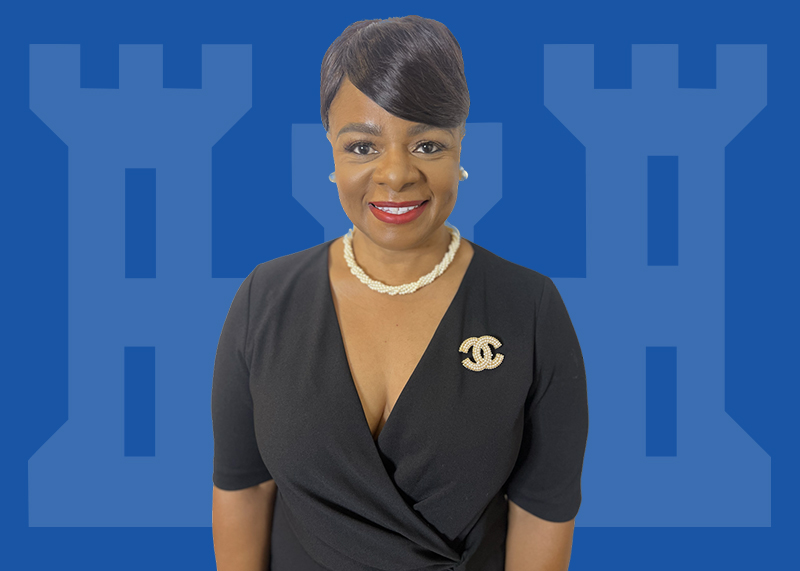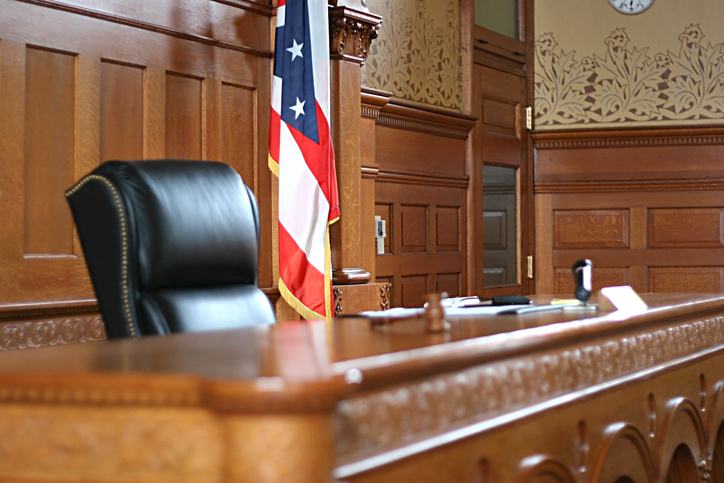May 14, 2025

This information is provided for educational purposes only by Kohn, Kohn & Colapinto and does not constitute legal advice. No attorney-client relationship is created by accessing this content. Laws and regulations may change, and this material may not reflect the most current legal developments. If you believe you have a whistleblower claim, consult a qualified attorney to discuss your specific circumstances.
The Stark Law, also known as the Physician Self-Referral Law, is a set of regulations in the United States that prohibits physicians from referring Medicare or Medicaid patients to receive Designated Health Services (DHS) at certain facilities if the physician has a financial connection to the facility.
A financial relationship means that the physician or an immediate family member has a stake in the facility and benefits financially from the patients self-referred. This covers ownership, investment, or any compensation agreement the physician has with the facility.
The primary purpose of the Stark law is to prevent fraud and abuse in healthcare. Referrals should be based on the needs of the patient, not the physician’s financial gain.
History of the Stark Law
The Stark Law can be found in Section 1877 of the Social Security Act (42 U.S.C. § 1395nn). It falls under the Centers for Medicare & Medicaid Services (CMS).
The Stark Law became law as part of the Omnibus Budget Reconciliation Act of 1990. This was known as “Stark I” and only applied to a narrow range of physician referrals for Medicare clinical laboratory services. Then, in 1993, amendments were made and included in the Omnibus Budget Reconciliation Act of 1993, which became “Stark II.”
These included provisions for Medicaid patients and DHS beyond just Medicare lab visits. Today, there are 12 DHS categories listed, which cover a wide range of services to prevent potential conflicts of interests when physicians make referrals under Medicare or Medicaid.
The 12 Designated Health Services (DHS) under the Stark Law:
- Clinical laboratory services: This includes tests analyzing blood, tissue, or other bodily fluids to diagnose and monitor medical conditions. Examples include blood tests, urinalysis, and biopsies.
- Physical therapy services: Services provided by a licensed physical therapist to help restore movement, manage pain, and improve function after injury or illness.
- Occupational therapy services: These services help patients regain skills for daily living activities like dressing, bathing, and eating due to injury, illness, or disability.
- Outpatient speech-language pathology services: Evaluates and treats speech, language, and swallowing difficulties caused by various conditions.
- Radiology and certain other imaging services: This includes X-rays, MRIs, CT scans, and ultrasounds used to diagnose and monitor medical conditions.
- Radiation therapy services and supplies: Treatment using high-energy radiation to kill cancer cells and shrink tumors.
- Durable medical equipment and supplies (DME): Includes wheelchairs, walkers, oxygen tanks, and other medical equipment for ongoing use in the home.
- Parenteral and enteral nutrients, equipment, and supplies: Nutritional support delivered intravenously (parenteral) or through a feeding tube (enteral).
- Prosthetics, orthotics, and prosthetic devices and supplies: Artificial limbs (prosthetics), braces (orthotic devices), and related supplies.
- Home health services: Skilled nursing care, physical or occupational therapy, and other medical services provided in a patient’s home.
- Outpatient prescription drugs: Medications prescribed by a doctor to be dispensed and taken outside of a hospital setting.
- Inpatient and outpatient hospital services: Any services provided by a hospital to patients admitted for treatment or those receiving care on an outpatient basis.
For a complete chronological breakdown of rulemakings, please visit the Centers for Medicare and Medicaid Services (CMS) website on Physical Self-Referrals.
Does The Stark Law Apply to All Referrals?
The Stark Law only applies to referrals for Medicare patients who seek the above DHS. It does not cover any other referrals, including those to healthcare services for patients with private insurance or who pay in cash. The exceptions are:
- Rental of office space or equipment: This exception allows physicians to rent space or equipment to a healthcare entity at fair market value, if the rental agreement is in writing and meets specific criteria.
- Compensation arrangements: Certain compensation arrangements are permitted, such as payments for bona fide services (e.g., rent, management fees) that are not based on the volume or value of referrals.
- Professional courtesy: Physicians can refer patients to colleagues or family members with whom they have no financial relationship if the referral is based on the patient’s needs.
- Retention payments: Hospitals can make payments to physicians to incentivize them to stay in the area and practice medicine, as long as the payments are not tied to referrals.
- Electronic health records (EHR) systems: This exception allows hospitals to provide EHR systems to physicians without violating Stark Law, under certain conditions.
- Timeshare arrangements: Physicians can share space and equipment with other healthcare providers through a timeshare arrangement, following specific guidelines.
- Assistance to compensate a non-physician practitioner (NPP): Physicians can be financially responsible for compensating NPPs (nurse practitioners, physician assistants) they employ, even if they refer patients to those NPPs.
- Incidental benefits to medical staff and personnel: Doctors and other healthcare staff can receive incidental benefits (e.g., meals, discounts) from hospitals or other healthcare entities, if the benefits are not tied to referrals.
This is not an exhaustive list, and the specific requirements for each exception are complex. You should consider consulting with a compliance specialist if you have questions.
Penalties for Violating Stark Law
There can be serious penalties for violating the Stark Law, with fines of up to $15,000 per service provided in violation of the law.
And if there is a scheme involved, the penalties can be upwards of $100,000. Violations can also prevent further participation in federal healthcare programs, such as Medicare or Medicaid, which could greatly limit a physician’s business.
Keep in mind, Medicare and Medicaid can refuse to pay for any services in violation of the Stark Law, and it’s possible that those who have received payments from self-referrals will have to return the money that they received.
Strict Liability
Unlike the Anti-Kickback Statute, the Stark Law is a strict liability statute. This means that simply knowing or should have known a violation occurred can result in strict penalties. In other words, proof of specific intent to violate the law is not required.
If the person filing the complaint can prove that the provider made a self-referral and benefitted from it, that is all that is necessary to be in violation of the Stark Law – even if the physician was not aware that their referral created a financial conflict of interest.
Avoiding Stark Law Violations
Its important physicians familiarize themselves with the Stark Law and its regulations. Please visit the Centers for Medicare and Medicaid Services (CMS) website on Physical Self-Referrals. In general, physicians should focus on the following to prevent a Stark Law violation:
- Focus on patient needs: The primary reason for a referral should always be the best interest and medical needs of the patient.
- Document referrals: Maintain clear and detailed documentation for each referral, justifying the medical necessity and absence of any financial influence.
- Avoid financial incentives: Don’t offer or accept financial incentives (kickbacks) in exchange for referrals.
- Maintain arm’s length relationships: Avoid any financial relationships with facilities where you refer patients frequently.
In addition to this, physicians need to develop clear policies and implement a clear compliance program and conduct regular audits to stay abreast of potential violations. Given the complex nature of compliance, we suggest getting in touch with an attorney for guidance.
Rewards for Reporting Stark Law Violations
The False Claims Act, or “Lincoln law,” is one of the oldest and most powerful laws in the United States. It allows whistleblowers to come forward with information regarding false or misleading claims to the government for payment.
And since Medicare and Medicaid are federal programs, any violation of the Stark Law can also be a submission of a false claim, because a service may not have been necessary or referred correctly.
Under the False Claims Act, there is a provision called qui tam. Qui tam, which means “who sues on behalf of the king,” allows whistleblowers to file qui tam lawsuits on behalf of the government if they have knowledge of false claims.
Moreover, this provision allows whistleblowers to receive a qui tam reward of between 15 and 30% of the amount recovered by the U.S. government in a successful qui tam lawsuit. These rewards can be into the hundreds of millions of dollars.
Reward amounts also vary depending on a few factors, such as the originality of the information presented, quality of evidence, and the whistleblower’s contribution. Again, these types of things are quite complex, and it’s advised you speak with an attorney if you have information.
Who Qualifies for a Reward?
For a whistleblower to be successful in a qui tam action, they must have strong and credible evidence to support their claims of a Stark Law violation – this includes documents regarding referrals, referral arrangements, or even emails or other forms of internal communications.
In many cases, there are also state False Claims Act laws that can apply to such violations, making the incentive to blow the whistle much greater. Given the complexity of FCA cases, it’s advised you speak to an attorney for more information on the proper filing procedures, limitations, etc.
Stark Law Whistleblower Cases
Unfortunately these cases happen all too often. There are many large whistleblower cases which involve Stark Law violations, which have also been pursued as qui tam lawsuits. Below are a few examples:
- Adventist Health System ($118.7 million settlement, 2015): A former executive brought a qui tam case against Adventist Health System, alleging the hospital chain violated Stark Law and the False Claims Act by making improper compensation arrangements to doctors for referrals. The case resulted in a $118.7 million settlement with the government.
- Wheeling Hospital ($50 million settlement, 2020): A former executive vice president filed a qui tam lawsuit against Wheeling Hospital in West Virginia. The lawsuit alleged violations of Stark Law, the Anti-Kickback Statute, and the False Claims Act through improper physician compensation practices tied to referrals. The case settled for $50 million.
- Halifax Hospital Medical Center ($85 million settlement, 2014): This qui tam case involved allegations that Halifax Hospital violated Stark Law and the FCA by entering financial arrangements with physicians that influenced referrals for designated health services (DHS). The hospital settled the case for $85 million.
- Amedisys Home Health ($150 million settlement, 2010): A whistleblower lawsuit alleged Stark Law violations by Amedisys. The company was accused of Billing Medicare for home health services to patients who didn’t qualify as “homebound,” as well as providing unnecessary therapy services to patients. The case settled for $150 million in 2010, with whistleblowers receiving $26 million.
This is just a sample of the types of cases which involve a whistleblower where Stark Law and qui tam exist. Not all cases are in the millions – settlements can vary depending on the violation and the evidence presented in a complaint.
Reporting Stark Law Violations
Our firm has been representing False Claims Act whistleblowers for over 35 years. The team consists of the world’s leading whistleblower attorneys who have intimate knowledge of federal and state whistleblower laws. Get in touch with our attorneys today for a free consultation.
Our Firm’s Cases

Contract Fraud Exposed
Dr. Tommie Savage, a seasoned contracting officer at the Army Corps of Engineers, uncovered a web of systemic corruption within the agency's Huntsville, Alabama contracting office. Her unwavering commitment to ethical government practices led to a relentless campaign of retaliation that would test her resilience and courage.

Qui Tam Victory
Whistleblower Bryan Swanton's qui tam lawsuit led to a $625,000 settlement against Instec Inc. for falsely claiming its Chinese-made scientific instruments were manufactured in the U.S. to secure government contracts.

Lives Saved
Dr. Aaron Westrick filed a False Claims Act lawsuit against Toyoba, the manufacter of Zylon fiber, a material that degraded over time, which put thousands of lives in American police departments, federal law enforcement agencies, and the U.S. military at risk.





